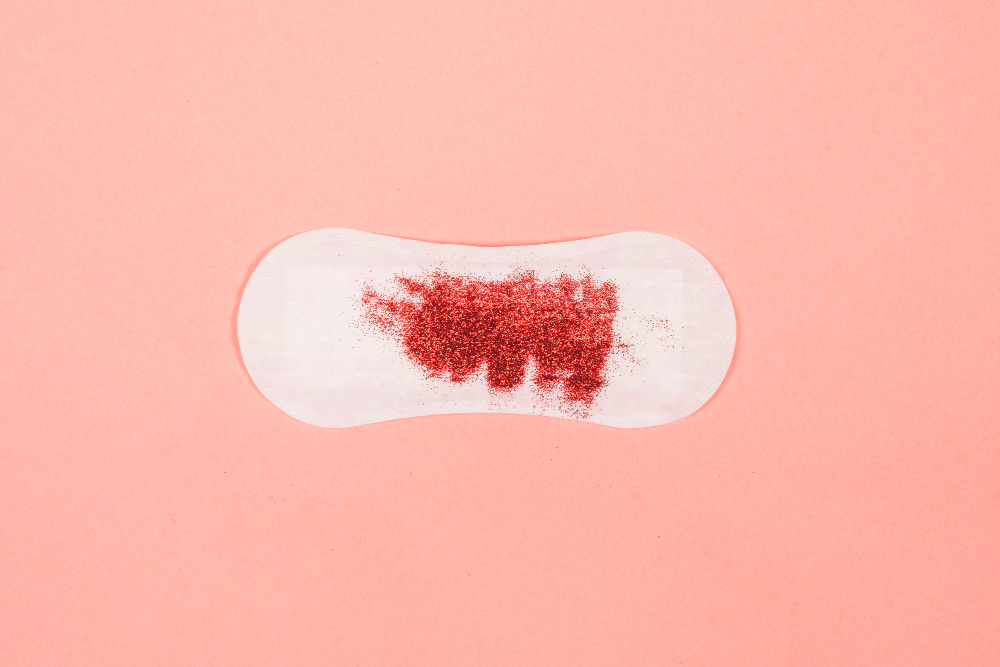
Menstruation is a monthly cycle that occurs in women. However, there are some women who do not regularly experience menstruation in a month. Even in some cases, menstrual blood that comes out can be in large quantities, moderate and tend to be small. Actually, is a small amount of menstrual blood a normal condition?
We will discuss what causes a little menstrual blood and how to remove menstrual blood that does not come out.
Any changes during menstruation should not be ignored. Including changes in the volume of menstrual blood that is usually smooth and abundant to be less. In the medical world, this condition is called hypomenorrhea which occurs due to hormonal problems.
Missing menstrual blood can be caused by various factors, and some of them include:
If a person is pregnant, menstruation usually does not occur. This is because the body prepares the uterus for pregnancy and does not shed the endometrial lining as usual. However, pregnant women can have spotting blood that is often considered menstruation even though the volume of blood is small. This spotting is actually an early sign of pregnancy or called implantation bleeding to symptoms of ectopic pregnancy.
Non-smooth menstrual blood is often experienced by those who are breastfeeding. This is because when breastfeeding will make the ovulation process not optimal. so that the volume of blood during menstruation becomes less. In some cases, mothers who are breastfeeding or providing exclusive breastfeeding do not menstruate at all for several months. And, this can be a natural birth control by the mother with some other requirements.
A person experiencing emotional or physical stress can affect the menstrual cycle. Stress can disrupt the hormonal balance in the body. The body will produce more cortisol hormone that inhibits the work of other hormones, such as estrogen hormone that functions for reproduction. Decreased estrogen hormone will affect the menstrual cycle and make menstrual blood not come out.
Polycystic ovarian syndrome (PCOS) is a hormonal disorder in women during fertile time. As a result, there is an imbalance of hormones between estrogen and progesterone. PCOS also causes the ovulation process to be inhibited, shorter menstrual periods and no menstrual blood.
Missing menstrual blood is also caused by an overactive thyroid hormone disorder. The condition of too high thyroid hormone in the body is called hyperthyroidism. The occurrence of thyroid hormone disorders can cause menstrual blood to come out only a little.
Taking certain medications can have side effects on the menstrual cycle. For example, using contraceptives such as birth control pills, implants to birth control injections causes thinning of the uterine wall layer. So that menstrual blood does not come out smoothly.
The increasing age of women greatly affects the volume of menstrual blood that comes out. The older the woman gets, the less menstrual blood she has. This happens when entering premenopause before menopause. During this period, hormone production will decrease.
If you experience abnormal menstruation, such as menstrual blood that does not come out, you should consult a doctor or health professional first to determine the cause. However, there are some steps you can try to stimulate menstrual blood discharge:
Try to reduce your stress levels and give your body enough rest. Stress can affect your menstrual cycle. Practicing relaxation techniques such as meditation or yoga can also help with menstruation.
Eating a healthy diet rich in iron and other nutrients can help your body function optimally. Adequate nutrition is important for reproductive health and normal menstruation. There are also menstruation-accelerating foods such as pineapple, grapes and beets that can help smooth menstrual blood out.
Make sure you stay well hydrated by drinking plenty of water. This can help maintain fluid balance in the body. Because, a body that lacks fluids or dehydration can also be the cause of menstrual blood not coming out.
Warm drinks like ginger tea can help stimulate blood flow and facilitate menstruation. However, again, make sure to consult a doctor first before trying home remedies like this.
Light exercise such as walking or swimming can help increase blood flow and stimulate menstrual blood discharge. Physical exercise can also increase the endorphin hormone which can facilitate menstruation and reduce menstrual pain naturally.
A way to expel menstrual blood that does not come out is to apply a warm compress to the abdomen. Some people experience the benefits of using a heating pad or warm compress on the abdomen to stimulate blood flow to the area. In fact, this method is also believed to help relieve menstrual pain.
However, it is important to remember that these methods may not be suitable or effective for everyone. If you have done these methods to remove menstrual blood that does not come out but your period does not normalize, immediately consult a doctor for evaluation and appropriate medical advice. (Aq/LDS)